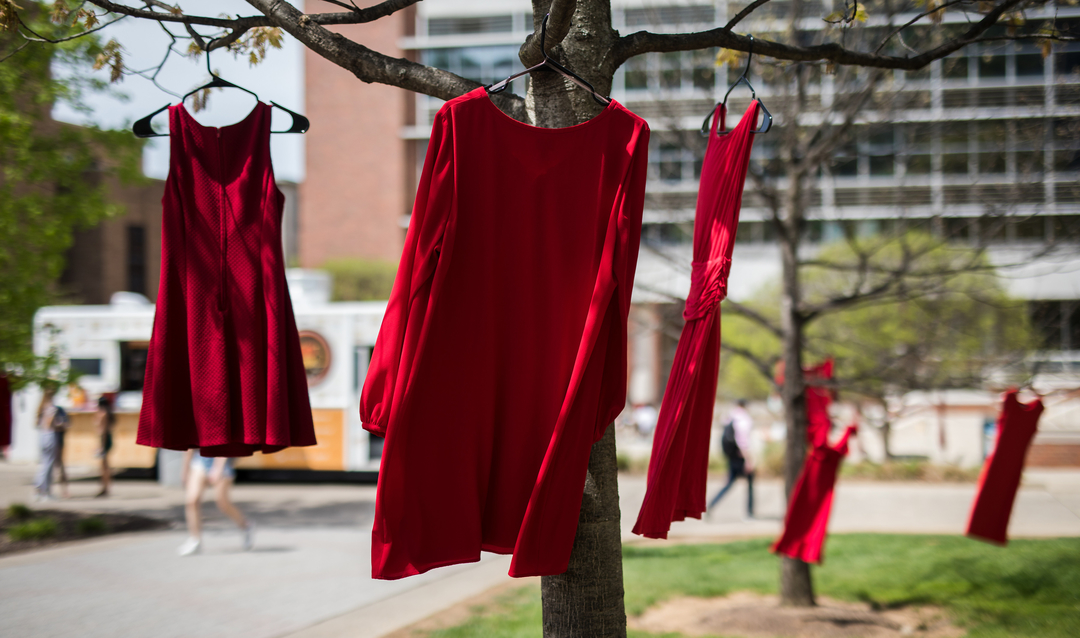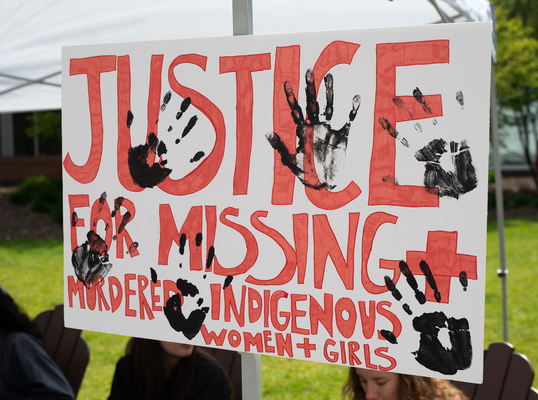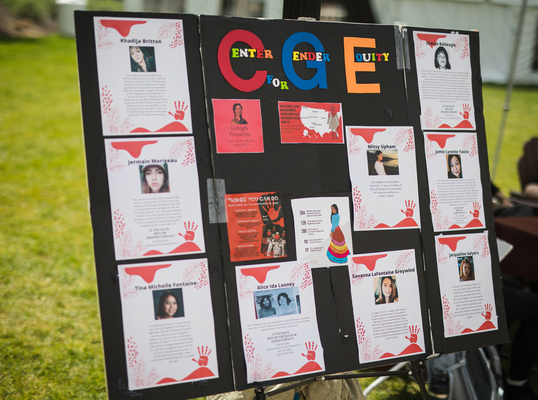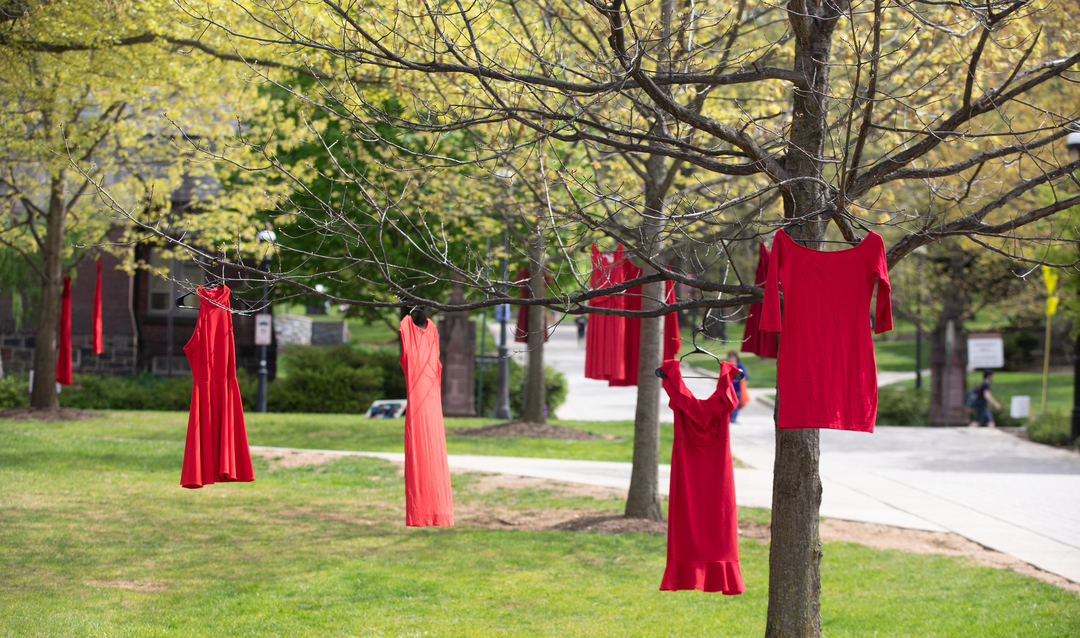Red dresses hung from tree branches and swayed in the breeze along Lehigh’s Fairchild-Martindale Library concourse in early May as a way to raise awareness about missing and murdered Indigenous women and girls in the United States, Canada and Mexico.
Students Sarah Mixsell ’24, Sarah Manthorp ’24, Jennifer Cocchiere ’24 and Natalia Montero ’22 worked with Lehigh’s Center for Gender Equity and the Institute for Indigenous Studies in a nod to Indigenous artist/activist Jaime Black’s REDress Project, a public art installation she created in response to the international issue.








